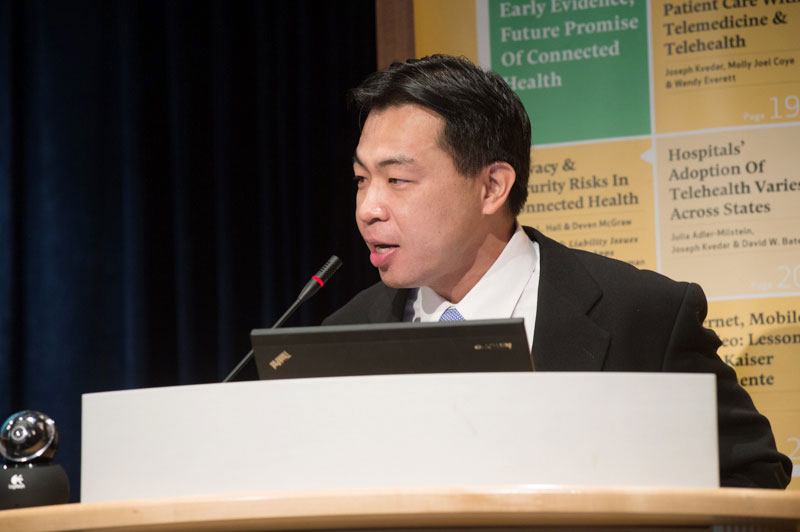A professor in the nursing school is leading a study exploring the impact of state laws on tobacco use in the United States.
The study, which began late last month and will conclude next spring, is evaluating the effectiveness of preemptive state laws – statutes that invalidate and replace local laws – that limit the advertising, licensing and accessibility of tobacco products. Researchers said the study will explore whether enacting or repealing preemptive state laws is associated with changes in the sale of tobacco products and the prevalence of smoking among adolescents and adults.
The Robert Wood Johnson Foundation’s Policies For Action program funded the study with a $150,000 grant for one year, researchers said.
Tony Yang, a health services and policy researcher in the nursing school, said analyzing the data collected will be crucial to understanding the impact of the laws on public health around the country.
He said the team will collect and analyze 20 years of quantitative and qualitative data on laws, health outcomes and health disparities. He said the data will pull from several databases from organizations like the American Nonsmokers’ Rights Foundation and the Centers for Disease Control and Prevention.
“Although a consensus exists among tobacco control practitioners that preemption adversely impacts tobacco control efforts, there is limited empirical evidence to quantify its effects on health disparities,” Yang said.
Yang said he is collaborating with a postdoctoral student in the Milken Institute School of Public Health and a professor at George Mason University to complete the study. He said the team’s investigation will be the first “rigorous empirical study” on state laws and how often tobacco is used.
“Our findings will have potential ramifications across the country, as many states have state preemption problems that are currently under-appreciated due to lack of research evidence,” Yang said.
Yang said 22 states, like California and Massachusetts, have “laws preempting local ordinances related to youth access to tobacco.” He said the laws forbid actions like selling tobacco to young people and selling tobacco products in vending machines.
He said many strong tobacco control policies surfaced at the local level before eventually being adopted as state or federal policy.
“These grassroots campaigns increase local awareness of tobacco control issues, build community readiness and support and foster public debate about the need for policy change and healthy social norms,” he said. “A preemptive state or federal law can invalidate many local tobacco control policies that represent years of efforts at the local level.”
Thomas Stratmann, a professor of economics and law at George Mason University, said he is overseeing the data analysis portion of the study. Stratmann said the study will quantify the effects of the state laws on the “healthiness” of citizens subject to laws regarding tobacco use.
“This will be a data-driven study, for which we will collect data for cases when state preemption laws apply and the healthiness, in particular, tobacco consumption, of the citizens affected by these laws,” Stratmann said.
Stratmann said he hopes the study will inform policymakers about the “merits” of state preemption laws, which could be enacted in other states.
Laudan Aron, the co-director of the Robert Wood Johnson Foundation’s Policies For Action – the organization that funded the study – said Policies for Action is “very excited” about the study and selected it because the results can be used to effectively address tobacco use in the United States.
Aron said the results could affect both local and state-level policymakers. She said there is an “urgent need” to understand and alleviate long-standing health inequalities and spread policies and laws that provide an opportunity for everyone in the United States to live a healthy life.
“The evidence generated by this research will be important for policymakers to draw on when developing and implementing policies to benefit population health and rescind policies that are not effective,” Aron said.





